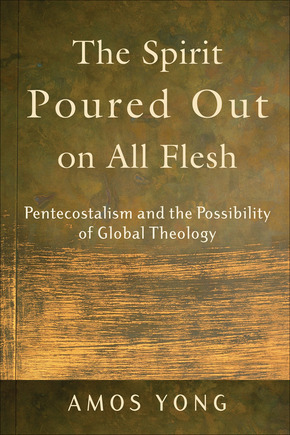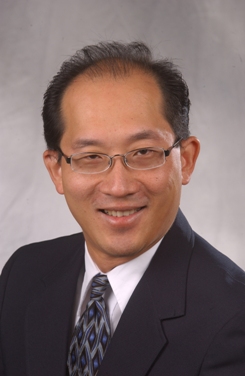Power from on High to Bear the Fruits of the Spirit
A Review of Amos Yong’s The Spirit Poured Out on All Flesh: Pentecostalism and the Possibility of Global Theology by Pastor Rony Reyes.

Amos Yong, The Spirit Poured Out on All Flesh: Pentecostalism and the Possibility of Global Theology (Baker Academic, 2005).
Amos Yong is an adroit theologian and a role model for young Pentecostal theologians in the twenty-first century. As Pentecostals seek to define their identity, Yong describes a Pentecostal theology from a pneumatalogical perspective. The Spirit Poured Out on All Flesh: Pentecostalism and the Possibility of Global Theology1 seeks to develop a Pentecostal theology by revisiting traditional views on Soteriology, Ecclesiology, Ecumenism, World Theology, Discernment, and Theology of Creation from a fresh perspective of the person and work of the Spirit. This book surveys how the Spirit works in different Pentecostal context around our globe. The title of his book emphasizes the new inclusiveness that is in distinctive Pentecostal Theological traditions. Throughout the book, I found Yong asking the overarching question, what does salvation mean to Pentecostals (in Latin America, Asia, Africa, the Caribbean, and the African Diaspora), and how has this been manifested and experienced.
Yong survey of Pentecostalism across the globe, it was interesting to discover how Latin American Pentecostalism engages social issues. Yong praises the efforts of two former Guatemalan Pentecostal/Evangelical presidents, Efrain Rios Montt, and Jorge Serrano (pp. 35-36). Although, I agree with Yong that Pentecostals need to be involved in politics, the question still remains how involved should the Pentecostal believer be in his/her motivation to social justice. In addition, how sensitive should they be toward others who have a different political and religious view?
In the case of Rios Montt, his political and religious views caused a great deal of disunity and conflict against Catholic believers. His views were so divisive that the Guatemalan army ended his presidency. Montt’s political motivations did not respect fellow human beings. Should not Pentecostal political involvement be an act of love that respects other human beings?
President Jorge Serrano was also disrespectful to his fellow citizen. He was not religiously sensitive to the natives of Guatemala. Serrano came into his presidency with his Pentecostal/Evangelical views declaring “Christ Jesus Lord of Guatemala.” In his political campaign he sought “to free the country from a curse relating to pre-Christian religion,” [Mayan Religion] (pp. 36). Based upon these examples, how can we balance Pentecostal political involvement and Pneumatological theology of religions in order to avoid demonizing other religions for political reasons?
In chapter 2, Yong further develops his Pneumatological soteriology discussing the saving work of the Spirit in transforming human lives, and “restoring humans to a relationship with God, to each other, and to their habitats” (pp. 117). The second explanation of his Pneumatological soteriology is that salvation is “a holistic and dynamic process: I was saved (justification), I am being saved (sanctification), and I will be saved (glorification)” (pp. 118). The third explanation is “the ongoing debate about whether the baptism in the Holy Spirit is understood as a conversion-initiation experience or a second (sanctifying) or even third (empowering) work of grace” (pp. 118). These three main explanations of his Pneumatological soteriology, can be summarized, “Salvation is a holistic transforming work of the Spirit on the human being that brings healthy relationships together by God’s Spirit.” Is this explanation of salvation sufficient and the only one within the Pentecostal experience? Could there be another manifestation of the Spirit by which salvation can be known?
Category: In Depth, Winter 2007



